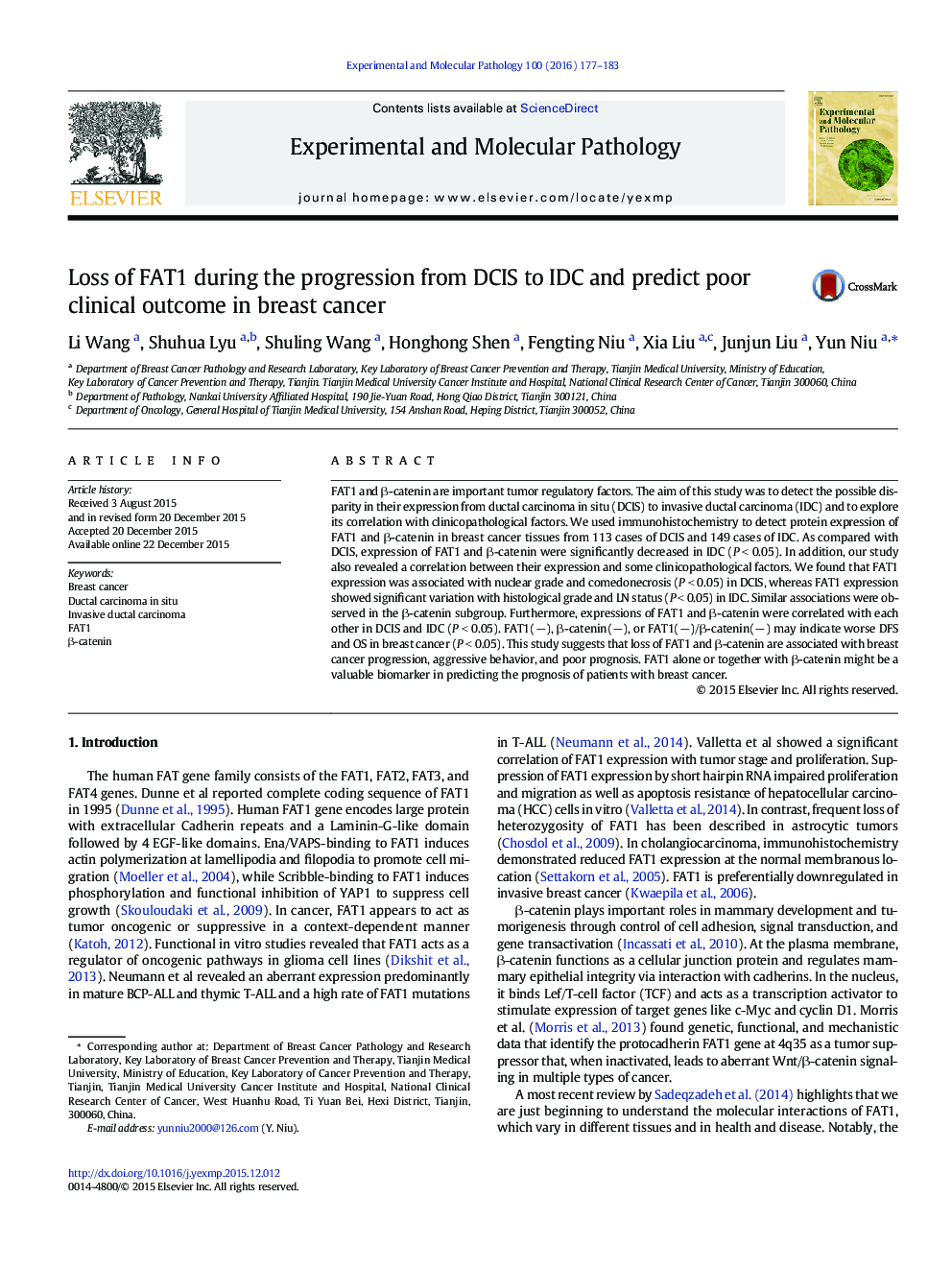| کد مقاله | کد نشریه | سال انتشار | مقاله انگلیسی | نسخه تمام متن |
|---|---|---|---|---|
| 2774998 | 1152303 | 2016 | 7 صفحه PDF | دانلود رایگان |

FAT1 and β-catenin are important tumor regulatory factors. The aim of this study was to detect the possible disparity in their expression from ductal carcinoma in situ (DCIS) to invasive ductal carcinoma (IDC) and to explore its correlation with clinicopathological factors. We used immunohistochemistry to detect protein expression of FAT1 and β-catenin in breast cancer tissues from 113 cases of DCIS and 149 cases of IDC. As compared with DCIS, expression of FAT1 and β-catenin were significantly decreased in IDC (P < 0.05). In addition, our study also revealed a correlation between their expression and some clinicopathological factors. We found that FAT1 expression was associated with nuclear grade and comedonecrosis (P < 0.05) in DCIS, whereas FAT1 expression showed significant variation with histological grade and LN status (P < 0.05) in IDC. Similar associations were observed in the β-catenin subgroup. Furthermore, expressions of FAT1 and β-catenin were correlated with each other in DCIS and IDC (P < 0.05). FAT1(−), β-catenin(−), or FAT1(−)/β-catenin(−) may indicate worse DFS and OS in breast cancer (P < 0.05). This study suggests that loss of FAT1 and β-catenin are associated with breast cancer progression, aggressive behavior, and poor prognosis. FAT1 alone or together with β-catenin might be a valuable biomarker in predicting the prognosis of patients with breast cancer.
Journal: Experimental and Molecular Pathology - Volume 100, Issue 1, February 2016, Pages 177–183